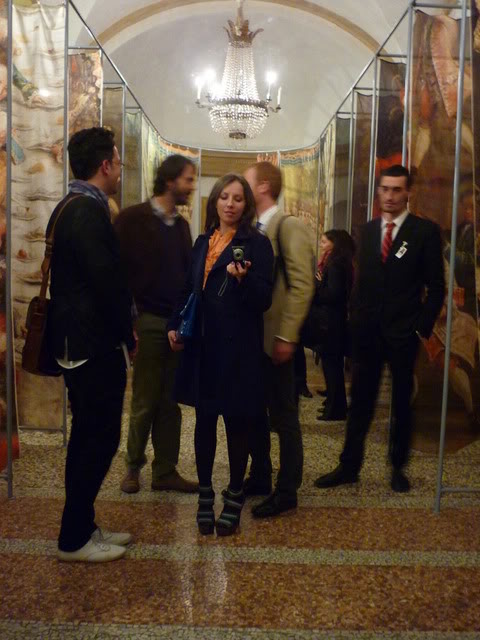When he leaves the ritual is reversed until shoes are laced and wallet is safely cradled back in pocket, then out the door, jaunty as a pirate captain at sea. In the days between our assignations I think of him often; not in a dehabilitating way, for I jealously guard my freedom and sincerely enjoy the time spent apart, but certainly with much affection as well as pleasure in the anticipation of our next meeting.
 But the white soldier that is his toothbrush catches me off guard at strange moments. For obvious reasons, these disconcerting moments usually occur in the morning and in the evening. Though peculiar, I suppose it has become my own effigy of him and apart from its practical uses, I do occasionally speculate that he left the toothbrush on purpose, knowing that it would remind me of him at least twice a day. For all the good there is between us, it may seem odd that a small, defenceless toothbrush could provoke such conflicting emotion. The arrival of a toothbrush is an event significant and trivial, symbolic yet meaningless, simultaneously representative of the present and perhaps indicative of the future. Conceivably the dichotomy lies in a conflict between the toothbrush as a symbol for what I sometimes hope the future might hold, but also as a cautious reminder of what it might not: once upon a time it was someone else's toothbrush sitting in my cup and, in the future, it may be a different someone else's toothbrush too.
But the white soldier that is his toothbrush catches me off guard at strange moments. For obvious reasons, these disconcerting moments usually occur in the morning and in the evening. Though peculiar, I suppose it has become my own effigy of him and apart from its practical uses, I do occasionally speculate that he left the toothbrush on purpose, knowing that it would remind me of him at least twice a day. For all the good there is between us, it may seem odd that a small, defenceless toothbrush could provoke such conflicting emotion. The arrival of a toothbrush is an event significant and trivial, symbolic yet meaningless, simultaneously representative of the present and perhaps indicative of the future. Conceivably the dichotomy lies in a conflict between the toothbrush as a symbol for what I sometimes hope the future might hold, but also as a cautious reminder of what it might not: once upon a time it was someone else's toothbrush sitting in my cup and, in the future, it may be a different someone else's toothbrush too.This would have been much less of an issue had he merely left dental floss...




No comments:
Post a Comment